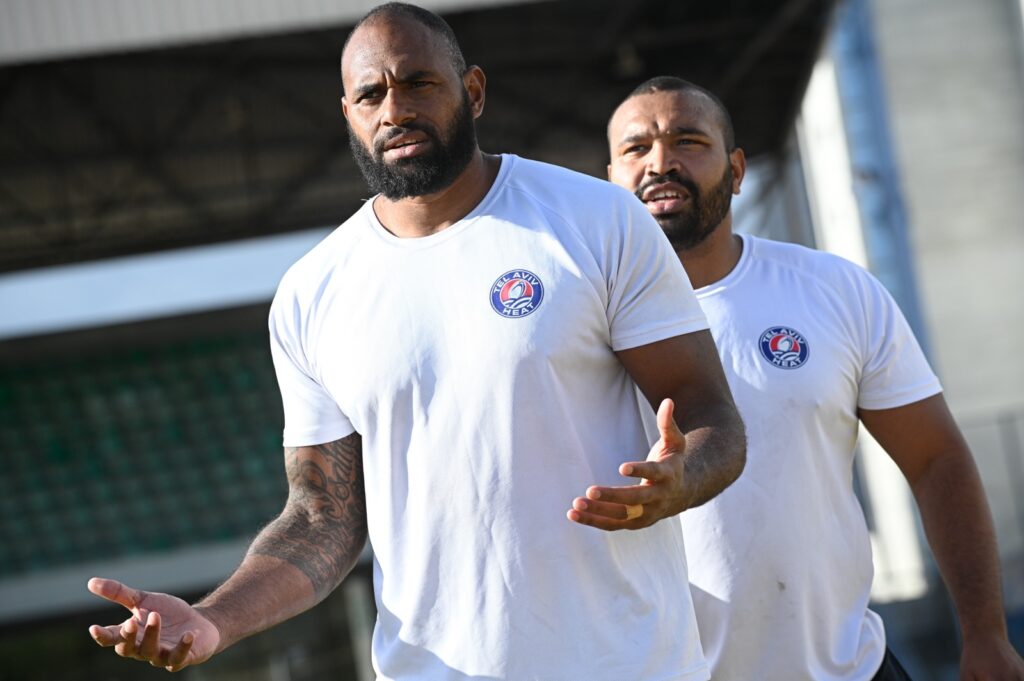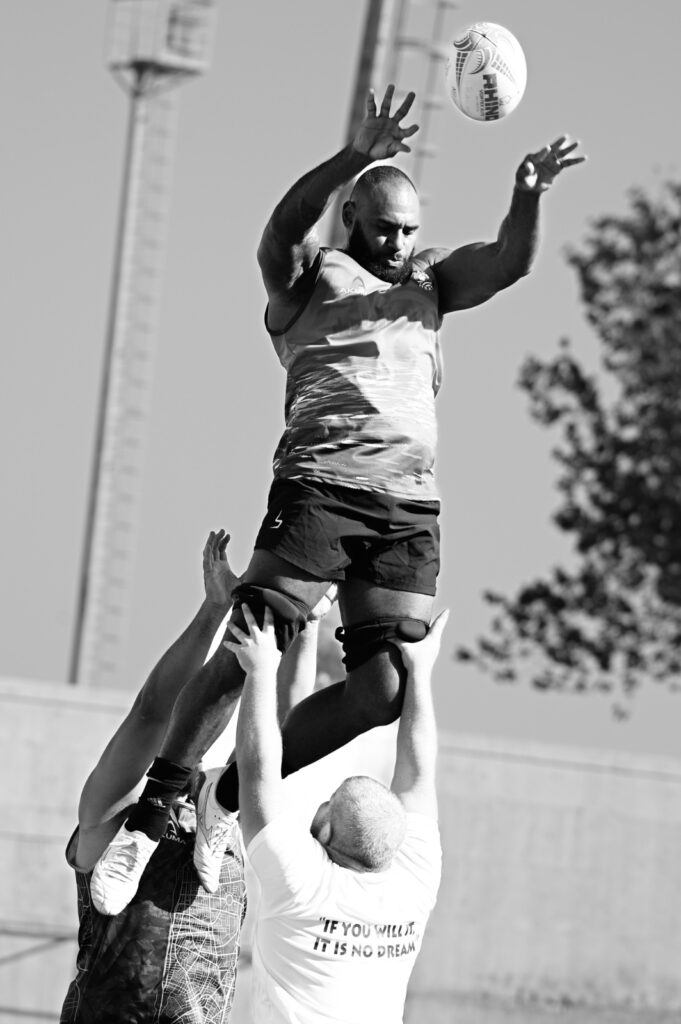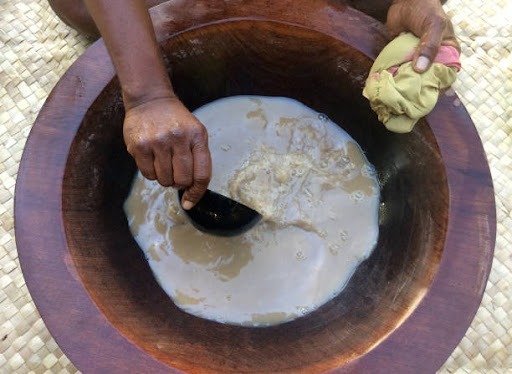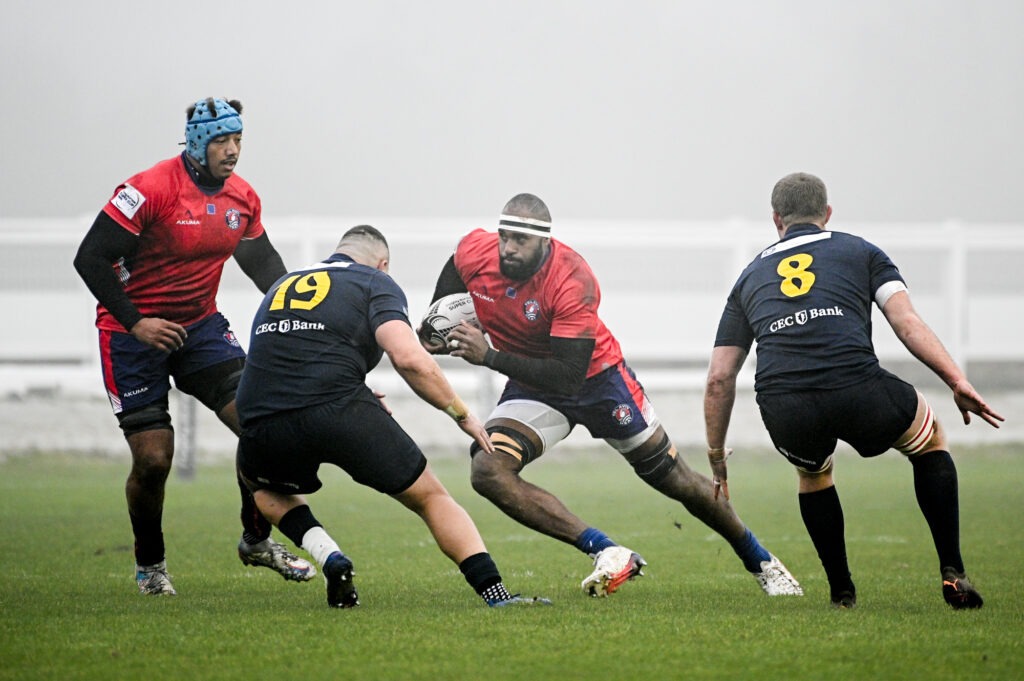Ahead of Tel Aviv Heat’s Super Cup final with the of Georgia, we chat with probably the best rugby player to ever play in Israel. We discussed life in Israel (‘The Land of the Bible’), life in Fiji (‘Like on a kibbutz’), rugby in Fiji, the Heat’s goals, the progress of the Israeli players and even learned to prepare Fijian Kava

1. Maybe we start with the business end. Friday – can the Heat finally beat the Black Lions? you’ve been very close in recent games.
I think it’s going to be tough. It’s a final. The second consecutive final for Tel Aviv Heat. But I believe we’ve learned from our mistakes in the previous game and the guys have prepared superbly this week. We’ll stick to our coaches’ plan and give it our best . The goal is to win this cup – and we will achieve it.
2. They say you’re the best player who ever played in an Israeli team. What brought you to Israel?
The first time I heard about Tel Aviv Heat was from Demetris (Kartrakilis), our offensive coach whom I know. He suggested that I join. I was surprised when I heard they play rugby in Israel, but I thought it was interesting. I’ve played all over the world, and it seemed like a great opportunity. You know, I’m Christian, and the team is based in Israel. The history of the Bible is in Israel and we only hear and read about Israel and Jerusalem. It was a chance to go there, to be on the land, to experience it first hand.
3. So, on the other side of the world, Fiji is far, most of us won’t get there, what’s it like to grow up there?
Honestly, It’s a bit like life on a kibbutz. Well, on a kibbutz I see very nice houses. We had bamboo huts when we were growing up but after that we managed to build a concrete house, and that was a big step for us. But things are organized much like on a kibbutz. I know on a kibbutz people eat together and we cooked and ate at home, but other than that everyone helps each other. Very communal. Taking care of one another, helping with work, not complaining. Taking life as it comes and flowing with it.

4. If I visit Fiji, what will I see there in terms of rugby?
In every village, every afternoon, you’ll see a game of one-touch rugby. That’s how we develop our technique. That’s why you’ll notice Fijians don’t need to pass with both hands. We have the one-handed pass like in basketball. We develop it in these one-touch games since we are kids.
5. And if I want to play soccer?
We don’t see it as an important sport.
6. So let’s talk about Fiji and this World Cup. You started amazingly, beating Australia. In the end you reached a quarter-final. Was that a disappointment?
I think Fiji played really well. They just missed a few big opportunities at crucial moments.
7. Is it a matter of experience? When you will join the Rugby Championship (with New Zealand, Australia, South Africa, Argentina) will you become a team that reaches World Cup semi-finals? A contender for the cup itself?
Yes, because we really need experience. You need to know how to make tough decisions. Like when to run and when to kick for touch. When to take the three points and when to go for the try. And we definitely made mistakes. The big teams—they’ve been there. They know that pressure. When we consistently play against them, we’ll learn to cope with that pressure and make the right decisions. It’s not just us – it’s all the Pacific nations—Tonga, Samoa, even Japan although they are progressing.
8. But in the 7s, you already cracked it. You know, I actually saw you in the Rio final. Do you know what I remember? You slaughtered the British on the field, 7-43, man! Then at the medal ceremony, you knelt before Princess Anne who came to award the medals.
Yes, we do that. We really learn to give respect in Fiji. A lot because we have a rugby team in every village and it teaches you that. So, we pray together at the end of each game. And we learn to show respect – we will bow to every important chief.
9. You’re an Olympic Champion in 7s… Do you prefer 7s or 15s?
Everyone asks me that… I love rugby. Take the ball and run.
10. Let me tell you something. In the 1990s there were Fijian forces both on the Lebanon border and down south. They used to play a match against each other in Tel Aviv. At the Sportek. There weren’t even goalposts, but it was an amazing game of rugby.
Sure. It’s soldiers. In Fiji you play rugby to be strong.
11. I remember the women were preparing some drink in a pot, then dipping cloths into the pot and squeezing the liquid into cups.
Oh, I’ll explain it to you, it’s kava. This is how we prepare it. We have a plant in Fiji called yaqona. We take its root, wash it, then cut and dry it. Once it’s dry, we crush it into powder and brew it in water. It makes the body relaxed. In Fiji, you drink it if you’ve had a tough day at work or on the farm. It relaxes the body.

12. So it’s for the post game? Do you drink it?
Every Fijian rugby player drinks it. Last year, we prepared it before the game in Georgia. Even the Israeli guys drank it. Nitzy (Nitzan Reizel) really liked it. You can ask him. It’s very soothing for the body.
13. When one watches you play the 8 – one thinks of Ardie Savea (World player of the Year from New Zealand). You have similar game: run, tackle, offload. All around. You could probably play 5-6 positions.
Well, when I was growing up, I had two heroes. Two role models. Vereniki Goneva and Semisi Naevo. They were my heroes apart from my dad. But yes, I see Ardie Savea, and he’s up there. I admire the way he plays. He does what I do. Carries the ball, tries to break tackles. That’s why I love this sport.
14. One of the goals of the Heat, maybe the central goal, is to promote Israeli players. How do you see their progress?
That’s a good question and also a tough one. We are very aware that it is the team’s goal to promote the Israeli boys. To create, to teach, to show them what work is, what the professional arena is. In my opinion, at the moment, the Israeli guys that are with us are doing very well.
15. What do they have? What do they maybe lack?
Everyone is extremely determined to learn and works hard on every aspect. I think the framework is excellent for them. I know it’s tough for them because it’s a challenging tournament. But I tell them – whether you’re in the squad or not for a particular game – keep working! Give it your all in every practice. Your time will come! It will come for sure. I tell them to make it difficult for the coaches in their selection. Give them something to think about. I hope and believe that within two or three years there will be some Israelis among the best players on the team.
There are a few players. For example, Idan (Eisenberg), who did not join us due to the war. Omer (Levinson) is progressing nicely. Nitsy (Nitzan Reizel) is progressing . Two three seasons.
(Ronen Dorfan)










